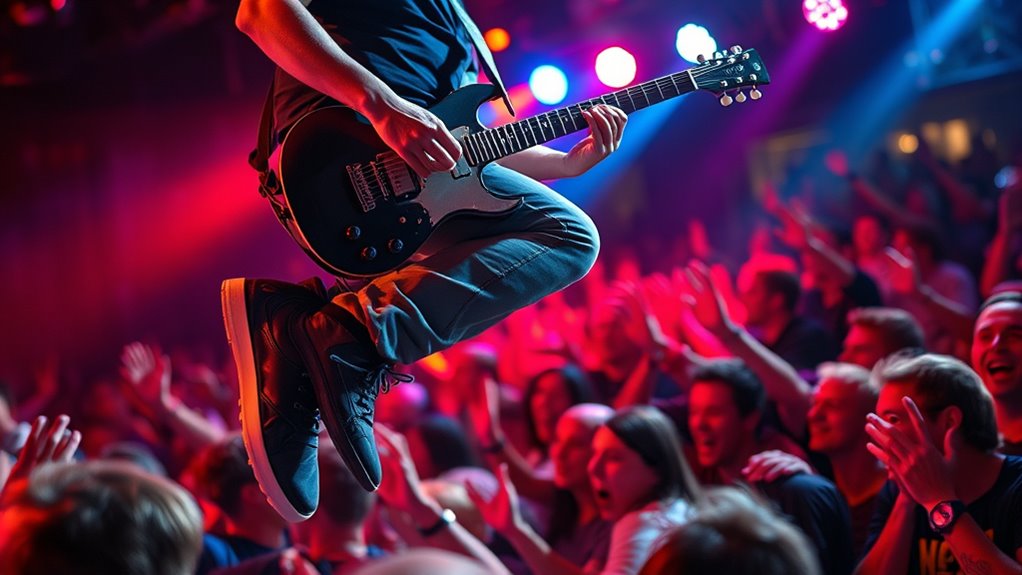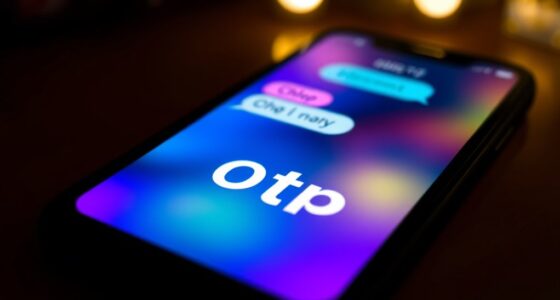In music slang, “slaps” describes a song or beat that hits hard with a powerful rhythm, making you want to move or dance. It’s all about energetic, impactful sounds like punchy drums, deep basslines, and catchy hooks that stand out. The term originated from hip-hop and rap scenes and has grown popular on social media, where users quickly praise tracks that feel intense and exciting. Continue exploring to uncover how “slaps” shapes modern music culture.
Key Takeaways
- “Slaps” describes a song, beat, or sound that is highly energetic, impactful, and makes listeners want to dance or nod along.
- The term originated from hip-hop and rap communities and has spread through social media and online music culture.
- It emphasizes the song’s strong bass, punchy drums, and overall powerful production that creates a memorable, exciting vibe.
- “Slaps” is used as slang to praise music that hits hard emotionally or physically, often appearing in comments and playlists.
- Recognizing a “slap” helps participants engage in modern music discussions and understand contemporary slang.
The Origins of “slaps” in Music Culture
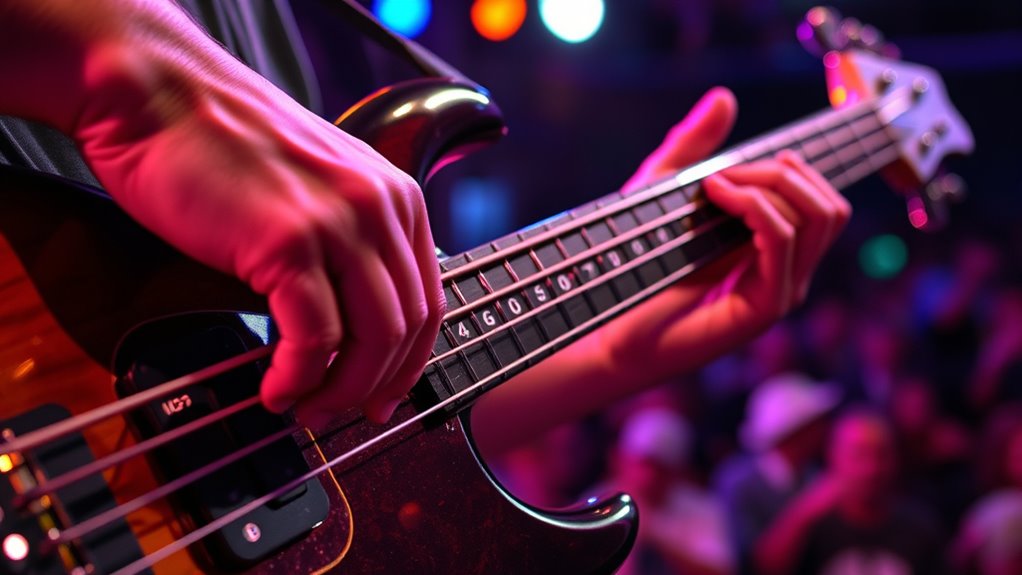
The term “slaps” in music culture likely originated from the hip-hop and rap scenes of the late 20th century. Its music slang origins trace back to urban communities where slang words quickly spread through local circles. When someone says a song “slaps,” they mean it hits hard emotionally or physically, capturing the song’s powerful impact. This phrase gained cultural significance as it reflected a shared appreciation for beats that make listeners want to dance or nod along. Over time, “slaps” expanded beyond hip-hop, becoming a broader term used to describe any music that’s exceptionally good or energetic. Its rise highlights how slang evolves within music culture, serving as a badge of approval and a way to connect with others who share similar tastes.
Defining “slaps”: What It Really Means
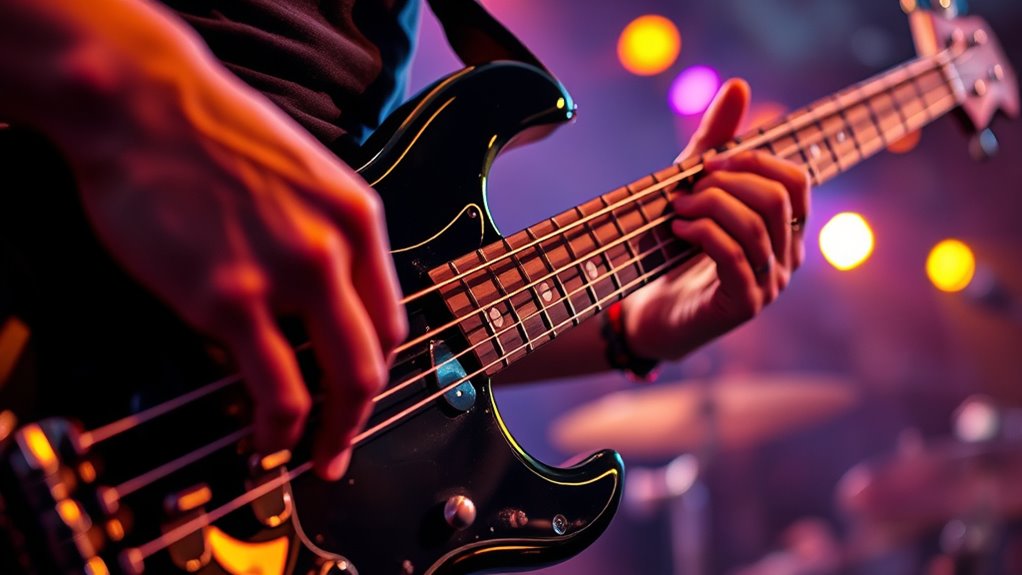
What does it truly mean when someone says a song “slaps”? In music terminology, it indicates a track with a powerful beat, catchy hooks, and an overall vibe that hits hard. Over time, slang evolution has transformed “slaps” from simple praise into a versatile compliment for music that excites and energizes. It’s more than just a catchy phrase; it’s a recognition of a song’s impact. Here’s a deeper look:
| Aspect | Explanation |
|---|---|
| Beat Quality | The rhythm hits strongly, making you want to move. |
| Catchiness | The melody sticks with you effortlessly. |
| Energy Level | The track exudes high energy and excitement. |
| Cultural Relevance | Reflects current music trends and slang shifts. |
| Emotional Response | Evokes strong feelings or nostalgia. |
Understanding “slaps” helps you appreciate the evolving language in music culture.
How to Recognize a Track That “slaps
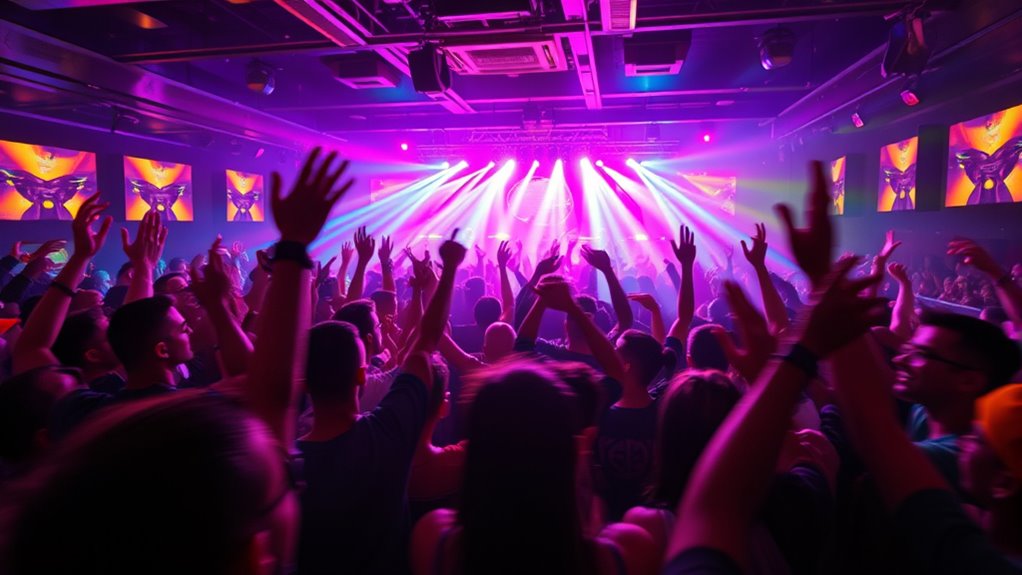
Recognizing a track that “slaps” involves tuning into its core elements that create an immediate impact. Pay attention to how the music production techniques contribute to its energy—strong basslines, punchy drums, and catchy melodies often signal a “slaps” track. Listener engagement strategies also play a role; if the song makes you want to move, dance, or feel a rush, it’s likely hitting that “slaps” mark. Notice how the arrangement builds excitement, with moments that hit hard and keep your interest peaked. Clear, dynamic sound quality and a compelling rhythm section are key indicators. Ultimately, a “slaps” song commands your attention instantly, making you feel the hype through its powerful combination of production and the emotional response it evokes. Sound quality is also a crucial factor, as crisp, well-balanced audio enhances the overall impact.
The Evolution of “slaps” in Social Media and Slang
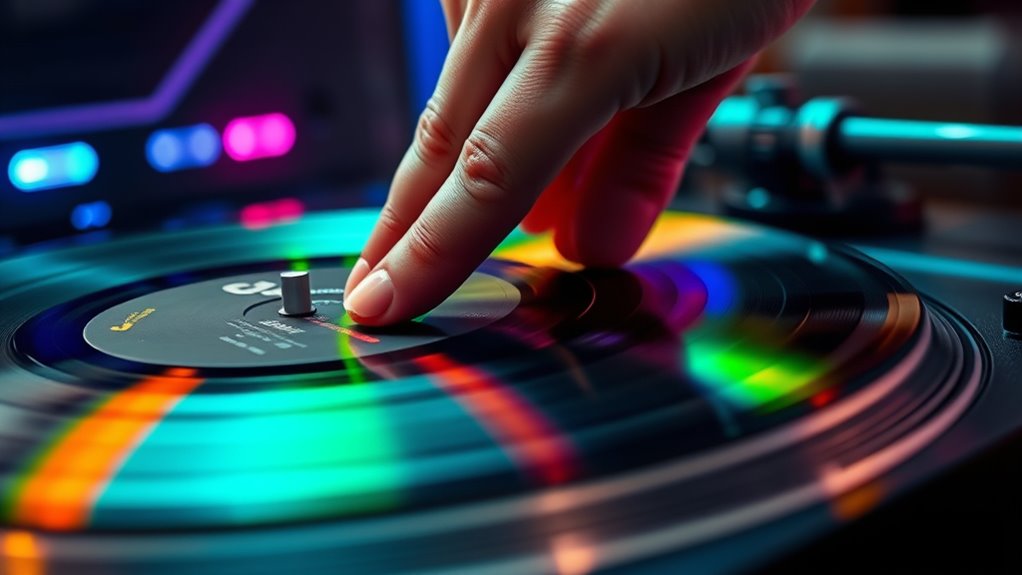
Social media platforms have propelled the term “slaps” from music circles into mainstream slang, making it a quick way to praise anything that’s exceptionally good or impactful. This shift highlights the cultural influence of online communities, where slang adoption spreads rapidly across diverse audiences. As users share videos, memes, and reactions, “slaps” evolves beyond its musical roots, now describing anything impressive or exciting. The term’s popularity on platforms like TikTok and Twitter amplifies its reach, fostering a shared language that’s easy to understand and use. Over time, “slaps” has become part of everyday conversations, reflecting how social media shapes language and cultural expressions. This evolution demonstrates how slang adapts and grows through digital interactions, solidifying “slaps” as a versatile compliment across different contexts. Additionally, the widespread usage of such slang underscores the importance of understanding language evolution in contemporary culture.
Examples of Songs That Are Considered “slaps

Some songs instantly make you want to turn up the volume because they’re considered “slaps.” These earworm tracks span various genres, from hip-hop to pop, that hit hard and stay in your head. You’ll recognize many of these hits as perfect examples of what it means for a song to be a “slap.” The energetic beats and catchy melodies often rely on high-quality production techniques to create that irresistible sound.
Earworm Tracks That Slap
Have you ever experienced a song that instantly gets stuck in your head and makes you want to replay it on repeat? These are the true earworm tracks that slap. Such songs often feature clever music production techniques, like catchy hooks and memorable melodies, that make them irresistible. Artist collaborations can also amplify their appeal, blending different styles to create something unforgettable. Think of tracks that hit you hard every time, making you feel energized or nostalgic. These songs stick with you because they’re crafted to be addictive, with layered beats and compelling vocals that stand out. When a song becomes an earworm, you know it’s a slap—something that resonates deeply and keeps you coming back for more. Additionally, the pop culture influence of these tracks often boosts their popularity, making them iconic in music history.
Genres Featuring Slaps
Ever wonder which music genres are best known for producing slaps? You’ll find that certain styles stand out for their infectious energy and catchy rhythms. For example:
- Hip hop tracks with heavy, punchy beats that make your head nod.
- R&B songs featuring smooth, soulful grooves that get stuck in your mind.
- Trap music with aggressive drum patterns and basslines that hit hard.
- Funk tunes driven by groovy basslines and lively percussion.
- Many of these genres incorporate elements of music production techniques that enhance the “slap” effect in their beats.
These genres often combine sharp hip hop beats with irresistible R&B grooves, creating the perfect foundation for slaps. When you hear a song with a beat that makes you want to dance or a groove that sticks with you, chances are it’s from one of these genres.
Differences Between “slaps” and Other Music Descriptors
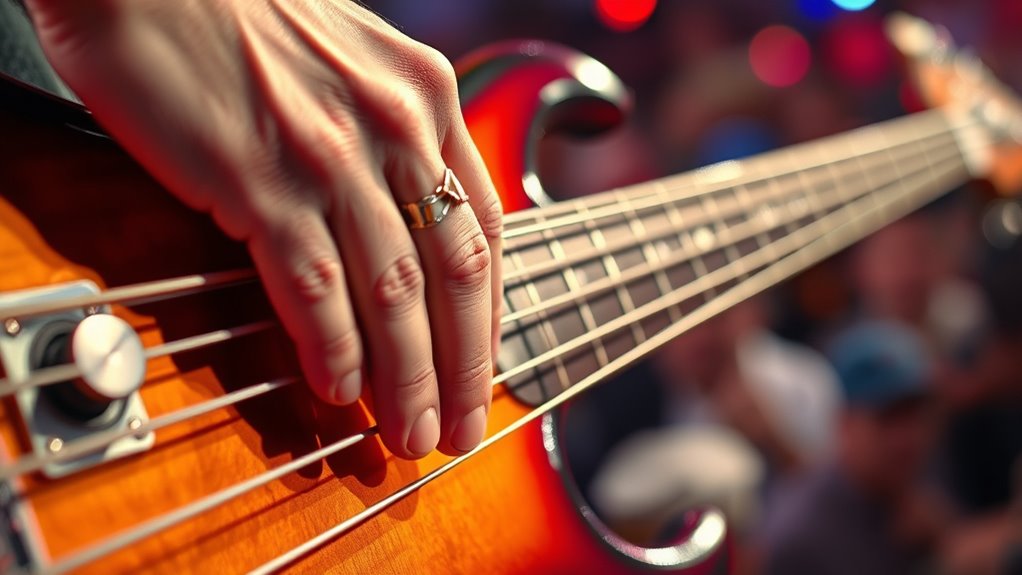
While many music descriptors convey the overall feel or style of a track, “slaps” specifically highlights a song’s impactful bass and rhythm that make you want to move. Unlike broad terms like “funky,” “jazzy,” or “upbeat,” “slaps” focuses on a particular element—its powerful, punchy sound that hits hard in the bassline and drums. As musical terminology, “slaps” is more specific, emphasizing a song’s groove and energy. In slang distinctions, it’s used to praise a beat that’s especially compelling and infectious. This sets “slaps” apart from general descriptors that describe mood or genre, making it a more precise way to express how a track’s rhythm and bass make you feel physically and emotionally engaged. Incorporating musical terminology helps clarify how slang terms like “slaps” relate to technical aspects of music production.
The Role of “slaps” in Hip-Hop and R&B

Why do “slaps” hold such a crucial place in hip-hop and R&B? Because they define the genre’s energy and vibe. You notice this in lyric analysis, where “slaps” often highlight tracks with infectious beats and memorable hooks. Production techniques play a essential role, shaping the sound that gets people moving. Think of these elements:
Slaps define the energy and vibe of hip-hop and R&B, making tracks unforgettable and infectious.
- Heavy basslines that hit hard
- Snappy drum patterns that drive rhythm
- Sharp synths adding texture
- Vocal samples that amplify intensity
Together, these create the perfect environment for a “slap” to stand out. When a beat “slaps,” it amplifies the emotional punch of lyrics and elevates the overall experience, making it a cornerstone of hip-hop and R&B music. Additionally, sound design techniques such as layered effects and spatial audio enhancements contribute to creating those impactful, head-nodding moments.
Common Phrases and Contexts When Using “slaps

You’ll often hear “slaps” in casual conversations about music, where people quickly share their favorite tracks. On social media, it’s a popular slang term used to praise a song’s quality or energy. When expressing musical preferences, saying a song “slaps” instantly communicates your enthusiasm and approval. Understanding these slang terms helps you stay engaged with the evolving language of music fans and tech enthusiasts alike. slang terminology
Casual Conversations in Music
Have you ever been in a casual conversation about music and heard someone say a song “slaps”? That’s a common example of casual slang expressions rooted in music slang origins. When discussing favorite tracks, you might hear phrases like:
- “This beat really hits different.”
- “The bass drops hard on this one.”
- “That chorus is fire.”
- “This track just vibes.”
These phrases create vivid images—imagine feeling the bass punch, hearing a powerful chorus, or just vibing with the rhythm. Such expressions make conversations more lively and authentic, reflecting the way fans naturally connect with music. Using “slaps” fits into this context perfectly, as it’s a straightforward way to share enthusiasm in relaxed chats.
Social Media Slang Usage
On social media, “slaps” is frequently used to quickly express approval and excitement about music. When you see someone post about a track or playlist, they might comment “It slaps!” to show it’s really good. During music festivals, fans often use “slaps” in captions or comments to praise performances that get everyone hyped. Streaming playlists are another common context, where users share their favorite songs by saying they “slap,” indicating they’re catchy or fire. This slang helps create a quick, shared understanding among music lovers online, making it easy to show enthusiasm without lengthy explanations. Whether scrolling through posts or chatting with friends, “slaps” remains a popular, informal way to celebrate music you love. Additionally, understanding the slang’s origins can help appreciate its widespread usage in modern digital conversations.
Expressing Musical Preference
When you want to clearly show that a song really resonates with you, using “slaps” is a straightforward and effective way to do so. It’s a popular slang evolution that helps express your musical preference confidently. When you say “this track slaps,” you’re indicating the song’s beats, lyrics, and vibe hit hard. You might use it in different contexts:
- Sharing your favorite playlist with friends.
- Reacting to a new release that’s fire.
- Complimenting a DJ’s set during a party.
- Telling someone a song is stuck in your head.
- Recognizing a song that embodies the energetic and vibrant musical expression popular among youth.
Why Understanding “slaps” Matters in Modern Music Conversation
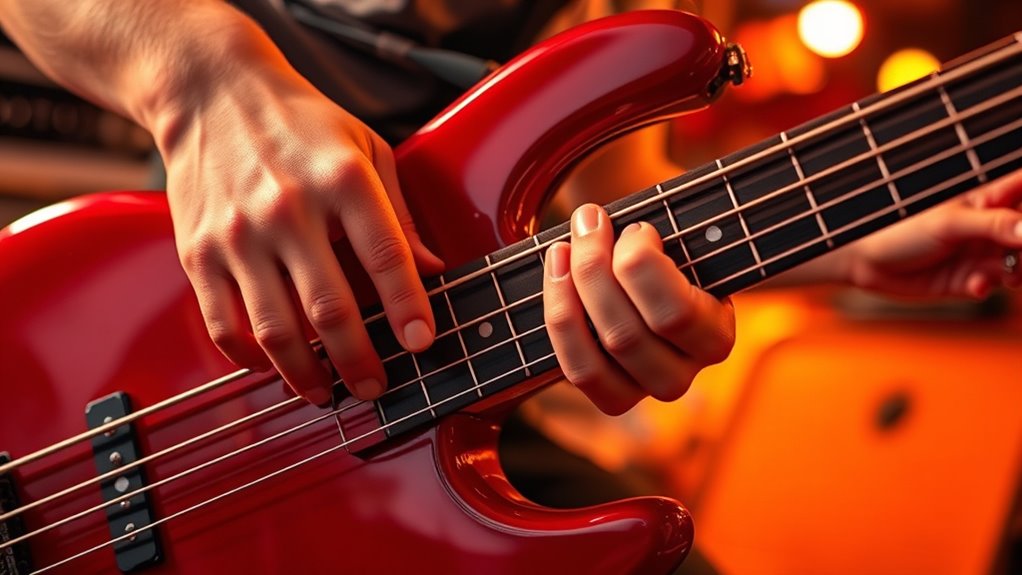
Understanding what “slaps” means in music slang is essential because it shapes how you connect with modern musical discussions. As music slang evolves, knowing current terms helps you stay engaged and informed. Recognizing that “slaps” signifies a beat or sound that’s especially impactful allows you to join conversations more confidently. This slang carries cultural significance, reflecting how listeners express enthusiasm and appreciation for a song’s energy. By understanding these terms, you gain insight into the language of today’s music community, making your interactions more authentic. Staying updated on slang like “slaps” also helps you appreciate the ways music reflects cultural shifts and social dynamics. Additionally, knowing about popular slang enhances your understanding of music communities and their shared language, enriching your overall experience. Ultimately, understanding “slaps” enhances your ability to engage meaningfully with contemporary music discourse.
Frequently Asked Questions
Can “slaps” Be Used to Describe Any Musical Genre?
Yes, “slaps” can describe various musical genres, showcasing its genre versatility. You’ll find the term used in hip-hop, R&B, pop, and even rock, highlighting how different styles can deliver that impactful, groove-heavy vibe. Its cultural significance lies in expressing genuine enthusiasm for music that hits hard emotionally and rhythmically. So, whether it’s a trap beat or a soulful melody, “slaps” can perfectly capture the energy across genres.
Is “slaps” Considered a Compliment or a Critique?
When you hear “slaps” in music industry slang, it’s definitely a compliment, not a critique. On social media trends, people use it to praise a song’s infectious beat or catchy hooks. Unlike negative comments, calling music “slaps” shows enthusiasm and approval. It’s a way to celebrate artists and their work, making it clear that the track hits hard and resonates, especially among younger audiences.
How Has the Meaning of “slaps” Changed Over Time?
The meaning of “slaps” has evolved from just a compliment to a broader expression of enthusiasm, influenced by cultural trends and social media. As slang evolves, you’ll notice that “slaps” now signifies that a song or beat is really good, often spreading through online platforms and music communities. This evolution reflects how cultural influences shape language, making slang like “slaps” more dynamic and widely understood across different groups.
Are There Specific Artists Known for Producing “slaps”?
You’ll find that artists like Metro Boomin, Dr. Dre, and Tay Keith are renowned for producing “slaps” in hip hop. Interestingly, Metro Boomin alone has produced over 150 chart-topping tracks, many of which feature viral trap beats. These producers craft those infectious, head-bobbing sounds that make a song undeniable. If you’re into “slaps,” chances are you’ve already vibed to beats created by these influential figures.
Can “slaps” Be Used to Describe Live Performances?
Yes, you can use “slaps” to describe live performances. When a show has high live performance energy, and the audience reaction is intense and enthusiastic, people often say it “slaps.” It captures that moment when the music and vibe hit hard, making everyone feel the rhythm. So, if a concert leaves you hyped and the crowd’s into it, you could definitely say the performance “slaps.”
Conclusion
Understanding what “slaps” means helps you connect more deeply with modern music culture, much like recognizing a hidden gem in a sea of stones. When you identify a track that “slaps,” you’re appreciating its raw energy and impact. Keep an ear out for those beats that hit hard and make you want to move—because, just like a powerful punch, a “slap” song leaves a lasting impression on your soul.
